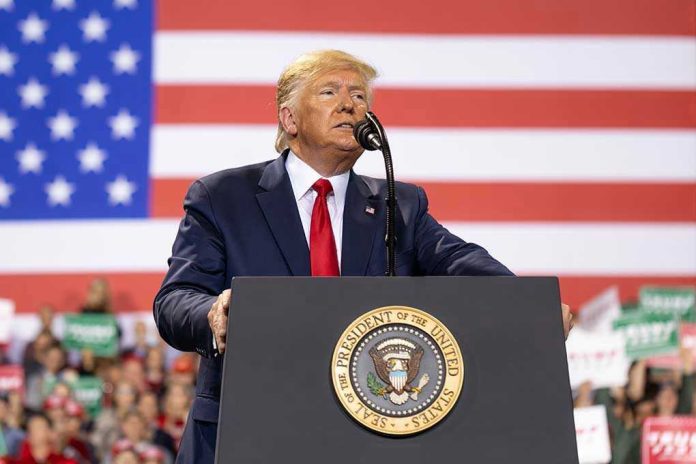
President Trump’s announcement of a sweeping voter ID executive order with “no exceptions” signals a bold constitutional showdown that could fundamentally reshape American elections while triggering fierce legal battles over federal versus state authority.
Story Highlights
- Trump vows executive order mandating voter ID for all elections nationwide with zero exceptions
- Plan restricts mail-in voting to only severely ill patients and distant military personnel
- Constitutional experts warn presidential authority lacks power to override state election control
- Previous Trump voting executive orders face ongoing court injunctions and legal challenges
Trump’s Constitutional Challenge to Election Authority
President Trump announced his intention to issue an executive order requiring voter identification for every single vote cast in American elections. The sweeping mandate would eliminate all exceptions currently allowed by various states and restrict mail-in voting to only the severely ill and military personnel stationed far from home. Trump’s declaration comes as his administration prepares for the 2026 midterm elections, positioning election integrity as a cornerstone conservative priority that directly challenges decades of state-controlled election administration.
Legal Experts Question Presidential Authority Over Elections
Constitutional scholars widely agree that Trump lacks unilateral authority to impose nationwide voting standards through executive action. The Constitution’s Elections Clause grants states primary control over election administration, with Congress holding secondary legislative power but not the president acting alone. This fundamental separation of powers creates significant legal obstacles for Trump’s proposed order, especially given that his March 2025 executive order requiring proof of citizenship for voter registration currently faces court injunctions and legal challenges.
State Officials Push Back on Federal Mandates
Several Republican election officials have expressed reservations about blanket restrictions on mail-in voting, recognizing its legitimate uses for military overseas voters and citizens with disabilities. These officials understand that implementing sweeping federal mandates would create administrative burdens and potential constitutional conflicts with established state election procedures. The resistance from within Republican ranks demonstrates the complexity of federalizing election standards, even among conservatives who generally support stronger voter identification requirements.
Election Integrity Versus Constitutional Limits
Trump’s proposal reflects legitimate conservative concerns about election security and standardized verification processes that could prevent fraud and ensure accurate voter rolls. However, the constitutional framework requires such changes to occur through proper legislative channels rather than executive overreach. The challenge facing Trump’s administration involves balancing the urgent need for election integrity reforms with respect for constitutional limitations on presidential power, potentially requiring congressional action to achieve lasting voter ID requirements nationwide.
Sources:
President Trump plans issue executive order require voter identification – ABC7
Preserving and Protecting the Integrity of American Elections – White House



